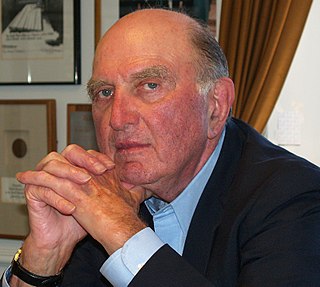A Quote by Reginald Horace Blyth
A haiku is the expression of a temporary enlightenment, in which we see into the life of things.
Quote Topics
Related Quotes
Regarding R. H. Blyth: Blyth's four volume Haiku became especially popular at this time [1950's] because his translations were based on the assumption that the haiku was the poetic expression of Zen. Not surprisingly, his books attracted the attention of the Beat school, most notably writers such as Allen Ginsberg, Gary Snyder and Jack Kerouac, all of whom had a prior interest in Zen.
Free speech is essential to education, especially to a liberal education, which encourages the search for truths in art and science. If expression is restricted, the range of inquiry is also curtailed... The beneficiaries of a free society have a duty to pursue the truth and to protect the freedom of expression that makes possible the search for a new enlightenment.
Let the children learn to see in nature an expression of the love and the wisdom of God; let the thought of Him be linked with bird and flower and tree; let all things seen become to them the interpreters of the unseen, and all the events of life be a means of divine teaching. As they learn thus to study the lessons in all created things and in all life's experiences, show that the same laws which govern the things of nature and the events of life are to control us, that they are given for our good, and that only in obedience to them can we find true happiness and success.
Enlightenment is construed as seeing things as they really are rather than as they appear; it is a direct insight into, and discernment of, the nature of reality that is apprehended only by wisdom, which transcends and is prior to the activity of discriminative thought. In this view, delusion is defined as all that is opposed to enlightenment.
I have searched everywhere to find an answer to my question, 'Is there enlightenment?' but have never questioned the search itself. Because I have assumed that goal of enlightenment exists, I have had to search. It is the search itself which has been choking me and keeping me out of my natural state. There is no such thing as spiritual or psychological enlightenment because there is no such thing as spirit or psyche at all. I have been a damn fool all my life, searching for something which does not exist. My search is at an end.
The sun shines, snow falls, mountains rise and valleys sink, night deepens and pales into day, but it is only very seldom that we attend to such things. . . . When we are grasping the inexpressible meaning of these things, this is life, this is living. To do this twenty-four hours a day is the Way of Haiku. It is having life more abundantly.
































